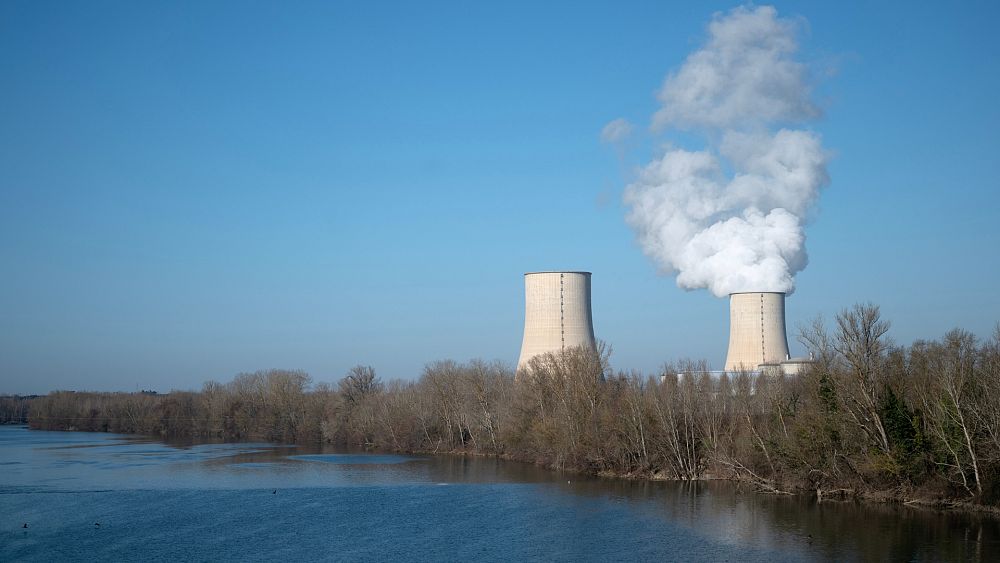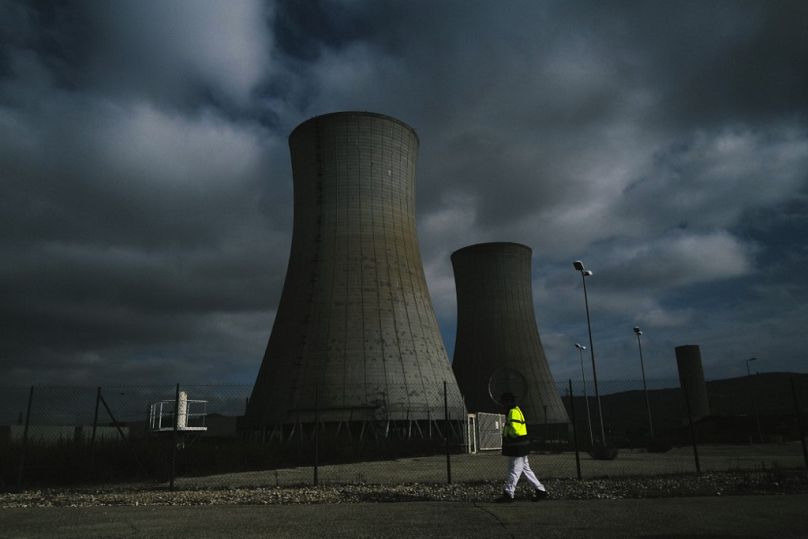
France is considering a law to speed up the construction of new nuclear reactors.
It is part of President Emmanuel Macron’s bid for energy independence in the country. On Monday, he said modernisation is essential to meet this goal. The bill is meant to streamline the process of approving and building new plants in the country.
It comes after Macron reversed a previous commitment to cap nuclear power to 50 per cent of the country’s energy.
This has caused friction with other European nations which don’t think nuclear power should be considered in the same way as other renewable energy sources.
How much of Europe’s energy comes from nuclear power?
Around a quarter of the EU’s energy is nuclear and more than half of that is produced in France. In total there are 103 reactors operating in 13 of the 27 member states. In 2019, these provided about 50 per cent of low-carbon electricity.
Across the bloc, there are a wide variety of different views on the use of nuclear power. This along with safety concerns often makes nuclear a controversial topic. Each member state makes its own choice as to whether to include it in its energy mix.
By 2025, it is thought that more than a third of the EU’s currently operating nuclear reactors will reach the end of their lifecycle and need to be shut down.
This puts many governments in a position where they need to decide on the future of nuclear in their country.
Which countries are against nuclear power?
After the Three Mile Island incident in 1979 and then the Chernobyl disaster in 1986, public opinion about nuclear energy changed dramatically. In Germany, fears about safety boosted the environmental movement and the country’s Green Party.
In 2002, Germany’s centre-left government passed a law to stop any new nuclear power plants from being built. All existing reactors were also to close in the future.
This was part of a shift away from fossil fuels to sources like wind and solar that the country considers truly renewable. While nuclear is considered ‘low-carbon’ as nuclear reactors don’t produce direct CO2 emissions, it relies on uranium as fuel — the mining and refining of which is energy intensive.
Then in 2010, Angela Merkel announced that the life of Germany’s nuclear plants would be extended to increase supplies of low-carbon energy.

Just a year later, the incident at Fukushima in Japan raised concerns once again. There were months of massive anti-nuclear protests across the country causing Merkel’s government to announce that all nuclear power plants would be closed by 2022.
There are now just three nuclear power plants left in the country. The threat of energy insecurity due to the war in Ukraine has extended their life beyond this deadline. In October last year, Chancellor Olaf Scholz said they would remain open until April 2023 to prevent an energy shortage.
There are only two countries that have completely phased out nuclear power for electricity generation after having operational reactors: Italy and Lithuania.
In Italy, it is a controversial topic. All of the country’s plants were closed by 1990 following a referendum on nuclear power. Since then, the government has tried to propose a revival — most notably a plan in 2008 to build as many as 10 new reactors.
Once again, the 2011 nuclear accident in Japan swayed public opinion with 94 per cent of the electorate voting for a construction ban in a referendum shortly after.
The source of energy is also controversial in other member states including Belgium, Portugal, Denmark and Austria — another strong anti-nuclear voice.
Which countries are spearheading a pro-nuclear push?
France has long been a European leader in nuclear power, pushing for its recognition as a low-carbon energy source. Since the 1980s it has been a dominant source of electricity in the country, which frequently gets the highest proportion in the world of its energy from this source.
In February this year, it was one of 11 countries that launched an alliance for nuclear power in Europe. Together they signed a declaration that said it was “one of many tools to achieve our climate goals, to generate baseload electricity and to ensure security of supply.”

The group is made up of Bulgaria, Croatia, Finland, Czech Republic, Hungary, the Netherlands, Poland, Romania, Slovakia and Slovenia alongside France. The alliance’s objective is to promote research, innovation and “uniform safety rules” while looking at how cooperation could lead to the construction of more reactors.
Despite its controversial history, Italy’s new pro-nuclear government also considered signing the declaration. It would be a powerful ally for pro-nuclear countries looking for enough votes to pass key legislation, including the energy source in EU climate targets.
In the end, it decided not to reverse its long-held anti-nuclear position but it shows that some countries could shift their perspective in the face of the climate and energy crises.
